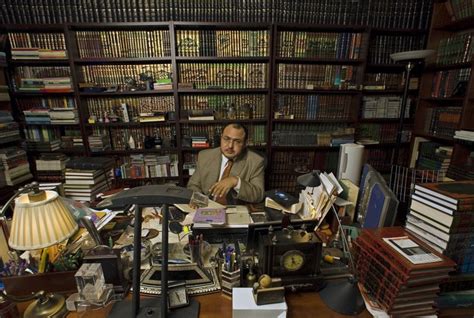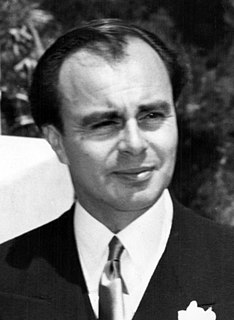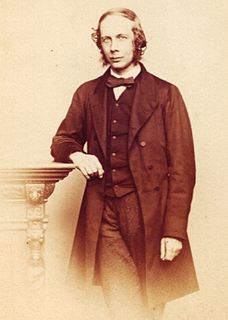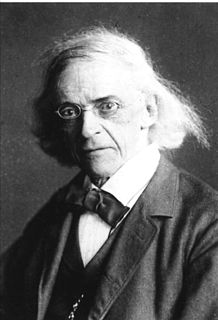A Quote by Keith Ellison
I'm not a scholar of Islamic history or jurisprudence or anything.
Quote Topics
Related Quotes
Jalaluddin Rumi is completely rooted in Islamic teachings of Quran. He was a great scholar, he belonged to a madrassa, and he knew Islamic theology and jurisprudence very well. He knew Persian, Arabic and Turkish, which was coming into Anatolia at that time, very well. He was a remarkable, remarkable scholar, besides being a great saint.
Qatar does not have much history, it's a new emirate. So I couldn't draw on the history of the country; its history is really just being a desert. But I thought, the one thing I must learn about for this project is the Islamic faith. So I read about Islam and Islamic architecture, and the more I studied the more I realized where the best Islamic buildings were.
Think about that: at a time when it was inconceivable to have a woman rabbi or a woman scholar of Christian theology or canon law, the Islamic civilization boasted hundreds of women who were authorities in Islamic law and Islamic theology and that taught some of the most famous male jurists and left behind a remarkable corpus of writings.
I think confronted with the modern world or with the rest of the world, I think people are becoming aware that the Western and Islamic civilizations have more in common than apart. It was a German scholar, C. H. Becker, who said a long time ago that the real dividing line is not between Islam and Christendom; it's the dividing line East of Islam, between the Islamic and Christian worlds together on the one hand and the rest of the world on the other. I think there is a lot of truth in that.
Every faith uses some kind of tool to understand itself better. Faith seeks understanding. The Western tradition has used philosophy to understand the truths of the faith and you come up with theology. Where as, Islam at a certain point said: we'll use law. There are these four major, developed schools of Islamic jurisprudence.
It is for Muslim scholars to study the whole history of Islamic science completely and not only the chapters and periods which influenced Western science. It is also for Muslim scholars to present the tradition of Islamic science from the point of view of Islam itself and not from the point of view of the scientism, rationalism and positivism which have dominated the history of science in the West since the establishment of the discipline in the early part of the 20th century in Europe and America.































